MAET Coursework
Here you will find the sequence of courses that I took to complete my Master of Arts in Educational Technology degree, as well as a description of that course. Work samples can be found on the "Technology Showcase' link.
Spring 2009
TE 846: Accommodating Differences in Literacy Learners - L. Disney

The purpose of this course is to learn about the "developmental processes, instructional practices, and assessment principles that contribute to effective learning of reading and writing." "Teaching methods for accommodating the different needs of individual literacy learners" was also addressed.
The main project for this course was to complete two case studies on students who have literacy challenges. Literacy related assessments to determine initial levels of competency, as well as post assessments, were used along with 1:1 tutoring sessions.
The main project for this course was to complete two case studies on students who have literacy challenges. Literacy related assessments to determine initial levels of competency, as well as post assessments, were used along with 1:1 tutoring sessions.
Summer 2010
CEP 810: Teaching for Understanding with Computers - C. Albin, C. McCarthy
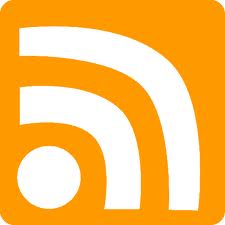
In this course, technologies that have become popular such as blogs, RSS feeds, and Podcasts were introduced as tools educators can use to stay informed about technology and provide more opportunities to our students in the classroom. Essential programs like the Microsoft's Word, Excel, and PowerPoint were given educational applications and implications for the classroom.
Fall 2010
CEP 811: Adapting Innovative Technology to Education - E. Stone
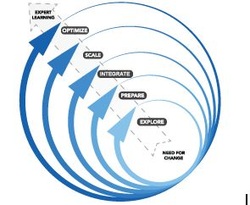
Image Copyright UDL Center
In this course, we were introduced to the concept of UDL, or Universal Design for Learning that stresses lesson planning and assignments that address the needs of all learners in the classroom. Based on these principles of UDL, I created a STAIR (Stand Alone Instructional Resource) that provided students with immediate feedback on a lesson where question and answer were effectively embedded into a PowerPoint presentation on plate tectonics.
Summer 2011
CEP 812: Applying Education Technology to Problems of Practice - C. Commeret, J. Spicer
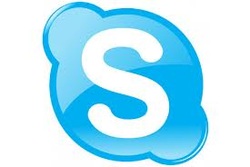
In this course, we addressed many problems and issues that occur in the world of teaching and learning. One of the problems we discussed was group work. We explored different tools including Skype and various Wikis to solve the issue of having group members in different places at different times, and trying to coordinate projects. One requirement was also that we were to address a technology issue in our district, and come up with a plan to solve it. We called this our Wicked Problem Project. I explored the use of Google Drive to replace the more costly Microsoft Office.
Spring 2012
CEP 820: Teaching K-12 Students Online - M. Schira-Hagerman, A. Wilcken, A. Niemela, S. Leahy
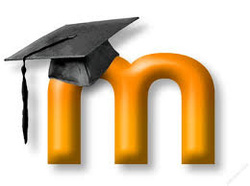
In this course, the objective was to research and select a CMS (Course Management System) to create at least three lessons within a unit that we could use in our classrooms. I chose to use the popular CMS Moodle to develop an online version of my Geology Unit. The lessons I focused on were on earth's layers and plate tectonics.
Summer 2012
The following courses were taken concurrently in a hybrid of a face to face and online learning environment.
Instructors were Punya Mishra, Laura Terry, and David Goodrich
CEP 800: Learning in School & Other Settings
CEP 815: Technology & Leadership
CEP 822: Approaches to Education Research

In this nine credit hybrid program, I spent the first two weeks of the six week program on campus at MSU. During this time, we used a multitude of new technologies to discover how learners in our classroom become motivated, engaged, and self driven. We also reflected on our own learning and teaching as we studied Willingham's Why Students Don't Like School. The last four weeks was spent coordinating with our peers and instructors online to create a project based grant proposal for solving an issue with student learning using technology.
Fall 2012
CEP 806: Teaching Science with Technology - D. Wong
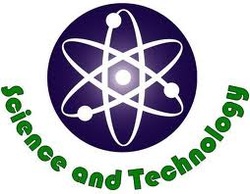
In this course, I spent a lot of time reflecting upon the differences between face to face and online learning, especially in the context of science class. Science can be a difficult subject to teach solely in an online environment due to its hands-on nature. We worked individually, in pairs, and in groups to discuss and create meaningful scientific experiences both in online environments and in face to face environments.
Spring 2013
CEP 807: Professional Seminar (Capstone) - M. Koehler, A. Zellner, W. Cain, J. Rosenberg, C. Sloan, M. Schira-Hagerman
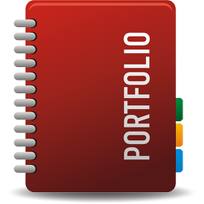
In this course, both MAED and MAET students worked to create a professional, online portfolio. Students were grouped together to provide weekly feedback to one another. The portfolio serves as a compilation of all the work completed during the Masters program, and as a tool for future employers to see the skill set we have upon completing the degree.
